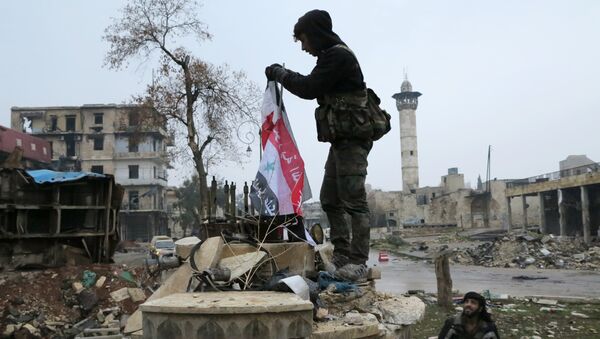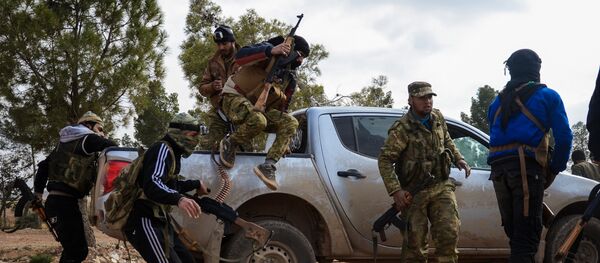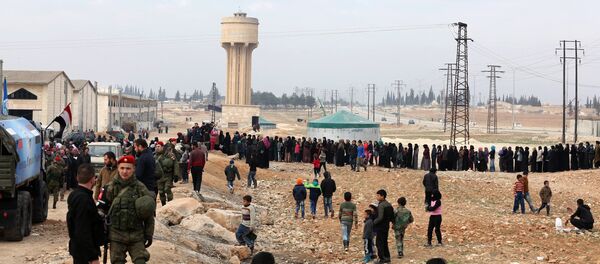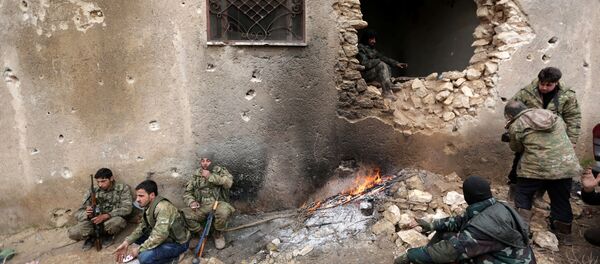The interview came after Major General Stanislav Gadzhimagomedov, head of the Russian delegation, said that during the Astana talks' first session, the sides "almost completely agreed upon the draft position of the joint group to monitor compliance with the cessation of hostilities [in Syria]."
"I think that at the next meeting we will sign the document," Gadzhimagomedov said, while a source in one of the delegations in Astana told Sputnik that the mechanism was 90 percent complete.
He also pointed out that Russia had proposed two additional documents on the control of the ceasefire arrangement in Syria.
Iran, Russia, Turkey Discuss Syria Ceasefire in Astana https://t.co/dTRvxlPZfz#Iran#Russia#Turkey#SyriaCrisis #astana pic.twitter.com/QUOsKE8z6R
— Alwaght (@EnglishAlwaght) 6 февраля 2017 г.
The first paper is a protocol on the ceasefire, which specifies that the government must cease hostilities and holds the parties responsible for providing humanitarian access and exchanging detainees.
The second document is a statute on the reconciled settlement that is designed to stabilize the situation in besieged areas as soon as possible.
During the Astana talks, participants also focused on separating moderate opposition units form terrorist groups on the Syrian map.
#Russia, #Turkey, #Iran discuss #Syria ceasefire implementation in #Astana https://t.co/chmXsZN8JN pic.twitter.com/lvLkU8rWlZ
— Al Arabiya English (@AlArabiya_Eng) 6 февраля 2017 г.
"At last meeting we demarked areas controlled by Daesh (ISIL/ISIS) from areas controlled by the moderate opposition. At this session we worked on the areas controlled by al-Nusra Front," Gadzhimagomedov said.
"The very act of doing so is a positive thing, although we should bear in mind that the main problem is fighting against armed radical opposition and terrorist groups," he said.
"In a sense, separating opposition group from terrorists is certainly a breakthrough. But we must understand that armed groups are semi-guerrilla units which contact with each other, and such contacts can take place between the moderate opposition and terrorist groups. So separating them fully is a very complex question which is yet to be resolved," he said.
Dolgov was echoed by Milos Strugar, the representative of the United Nations Interim Force in Lebanon, who applauded the results of the Astana talks on coordinating a mechanism to monitor the ceasefire in Syria.
"Of course, it is successful," he said in an interview with RIA Novosti, referring to the talks' session which wrapped up on Monday. Strugar declined to elaborate, citing the fact that the UN is not a full-fledged participant in the negotiations.
Differentiating between terrorist extremist groups and other anti-government factions has been a problem that’s continually plagued outside attempts to resolve the conflict, even among the opposition's foreign sponsors.
Lavrov: Syria ceasefire deal open to all but #ISIS and Al-Nusra https://t.co/QuRxUCaNP2
— Al-Masdar News (@TheArabSource) 2 февраля 2017 г.
According to the US National Counterterrorism Center, "several Syria-based armed opposition groups cooperate and fight alongside Sunni extremist groups, including al-Nusra Front, and are dependent upon them for expertise, training, and weapons."
Russian President Vladimir Putin announced in December 2016 that the Syrian government and armed opposition groups had reached an agreement on a nationwide ceasefire in Syria and on readiness to start peace talks.
Never miss a story again — sign up to our Telegram channel and we'll keep you up to speed!





